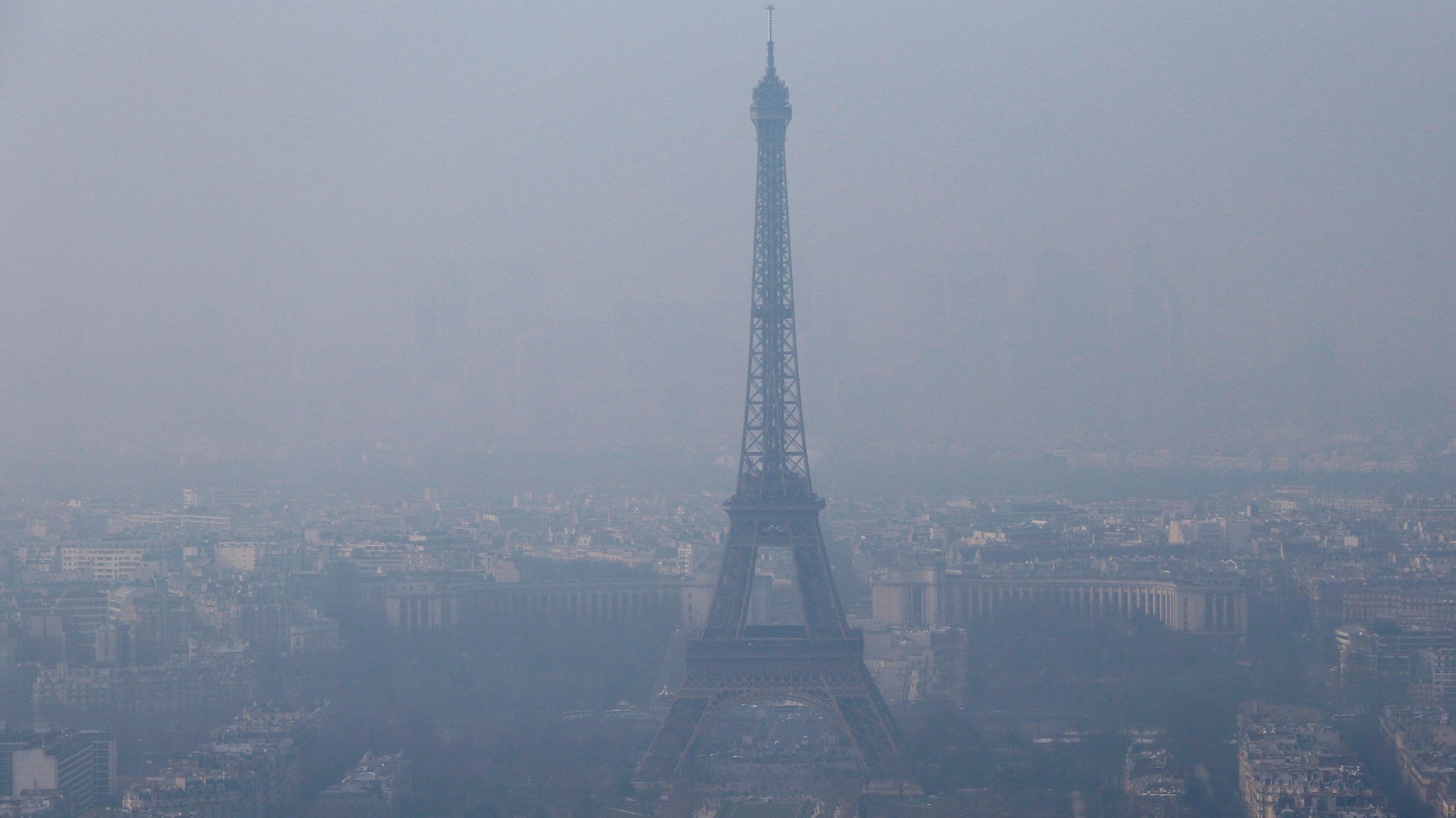Cutting air pollution could save Europe up to $775 billion by 2025
Economists have long understood that protecting the environment eventually turns out to be good for the economy, too. More recently, they have become better at putting a dollar amount on just how good. Last week, the UN published a report showing that aiming for more ambitious goals on climate change would result in tens of trillions of dollars of saving for the global economy.


Economists have long understood that protecting the environment eventually turns out to be good for the economy, too. More recently, they have become better at putting a dollar amount on just how good. Last week, the UN published a report showing that aiming for more ambitious goals on climate change would result in tens of trillions of dollars of saving for the global economy.
Take the case of air pollution. In Europe, most pollution is caused by road transport and household heating. Cars, trucks, and boilers using dirty fuels pump out a mixture of carbon dioxide, nitrogen oxides, and particulate matter. While carbon dioxide is the main greenhouse gas, nitrogen oxides and particulate matter are what cause smog, which results in illnesses and premature deaths. Air pollution also has secondary impacts: reducing the attractiveness of a city, cutting its income from tourism, and lowering the value of real estate.
Putting all those negative impacts together means Europe could lose between €243 billion and €774 billion ($282 billion to $897 billion) by 2025. If instead Europe were to spend money on increasing the number of electric cars on the road and switching from dirty heating fuels to cleaner ones, it could save between €94 billion ($109 billion, the lower bound of a conservative estimate) and €669 billion ($775 billion, the upper bound of an ambitious estimate), according to a new report published by Deloitte and InnoEnergy. That’s worth between 1% and 4% of projected European GDP.
To achieve these savings, the report recommends a partnership between the public and the private sectors. Those partnerships should focus on four clusters: electric mobility, public transport, more efficient buildings, and distributed energy generation and storage systems. If the right policies were deployed to incentivize the deployment of cleaner technologies, it’s possible to reap huge benefits in the long run, the report argues.
The investments will have other benefits, too. Switching to electric cars and cleaner fuels will reduce carbon-dioxide emissions, which will help Europe meet its goals set under the Paris climate agreement.